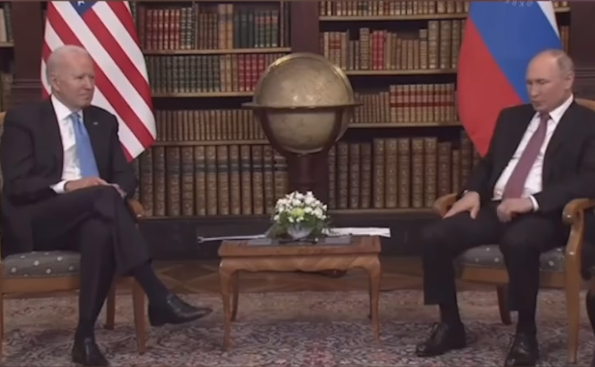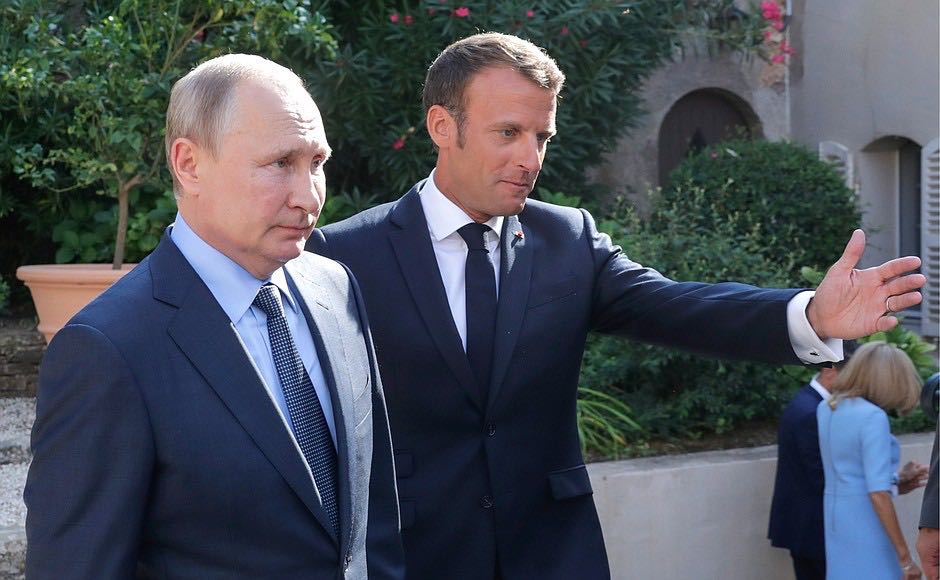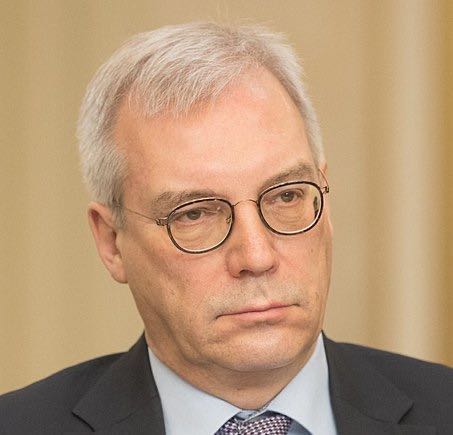NATO
-
Ukraine’s path to NATO membership has become shorter, but not faster
The NATO summit in Vilnius was neither a victory nor a failure. Ukraine didn’t get an invitation for the alliance nor real security guarantees. But if Ukraine is ready to face the demands and fulfill the conditions of the West, the road to NATO-membership will be achievable.by Kostiantyn Yelisieiev -
Not Germany or France but US main obstacle for Ukraine’s access to NATO
Fifteen years ago Germany and France refused Ukraine membership of NATO. Now the USA are the main obstacle. On the eve of the NATO-summit in Vilnius (11-12 July) the stakes are high. Ukraine will not accept promises about ‘deepening the partnership’ but will ask for a clear invitation.by Sergiy Sydorenko -
Ukrainian civil society appeals to NATO leaders ahead of summit
More than seventy Ukrainian think tanks, NGOs and other organizations are calling on NATO to hurry. According to them, a commitment to membership acts as a deterrent to Russia and gives Ukraine energy and confidence in victory.by Center for Civil Liberties a.o. -
High noon in Ukraine: who blinks first
The Kremlin doesn’t understand the quintessence of Ukraine. Therefore Putin’s interventions since Euromaidan backfired:
... -
Ukraine’s army vastly improved but can't win from Russia
The Kremlin denies any plans to attack Ukraine, but policymakers in Kyiv and Washington say the Russian military’s buildup
... -
Excluded from talks, Ukraine prepares to fight
With US-Russia talks underway on the future of Ukraine’s security, and with Ukraine absent, the population can only hope for peace and get ready to fight. Ukraine’s anxiety that its destiny might be decided in its absence, despite reassuring statements from the allies, is palpable.by Olga Tokariuk -
Putin promises 'adequate military responses'
During a meeting at the Ministry of Defense on 21 December Putin promised 'adequate military and technical responses' if the West continues its 'clearly aggressive line' of NATO expansion. Accepting means 'a fundamental overhaul of the current European security order in favour of Russia'. But refusal gives Russia the pretext for military action against Ukraine.by Marek Menkiszak -
Ukraine crisis: a case study in modern Kremlinology
Putin has loaded the gun. But will the trigger also be pulled? The West cannot know for sure what is intended. The Ukraine crisis is a kind of quantum politics.by Mark Galeotti -
Has Biden thrown Ukraine under the bus or averted war?
Ukraine has reason to be nervous about the direct talks between Biden en Putin about Russia's security issues. In spite of reassurances, Ukraine doesn't know if Biden made some promises at Kyiv's expense. President Zelenskiy's room for maneuvring is limited, as the Ukrainian society opposes any concession to Moscow.by Mike Eckel -
Moscow wants to limit Ukraine's sovereignty via Washington
Many of the debates about the possibility of a Russian military action against Ukraine focus on what what US President Joe Biden and other NATO leaders can do to prevent it (or how to react if it happens.) What has been missing is a reflection on some of the wider contextual motives behind Moscow’s moves to ratchet up tension.by Anton Barbashin -
What Russia’s military movements could mean for Ukraine, Europe, and NATO
Once again Russia is mobilising its forces near the Ukrainian border, but much more covertly than in the past. Moscow’s belief that the EU and US will not step in to protect Ukraine could lead it to take direct military action.by Gustav Gressel -
The latest spat between Russia and NATO is symbolic, not significant
After NATO's expulsion of 8 Russian 'spies', Moscow retaliated with the closing down of the permanent mission to NATO in the Russian capital. How bad is that? According to our columnist Mark Galeotti Moscow does not believe that multinational agencies have any real importance. It prefers bilateral contacts, like the talks between Putin and Biden.by Mark Galeotti -
Could the West have saved Russia from itself? No.
It is an eternal discussion in East and West. Did the euforic West let down Russia after the collapse of communism? The economic collapse of the 1990s quickly alienated the people from a choice for a western partnership. Public opinion returned to nostalgia of the past and political elites cynically used this to keep their power. And now conveniently blame the West.by Igor Gretski -
Balts and Russians must change their old school political relationship
For the Baltic states and for Russia it's time to stop fighting yesterday's battles, and look with clear eyes at the world as it is and at each other.Today’s challenge for the Baltic states is to transform their moralist position into a policy that could work.by Kadri Liik -
With belligerent Ankara, Russia’s global ambitions hit a regional snag
As the international global order is unraveling, Russia is facing a belligerent Turkey in the deadly Nagorno-Karabakh escalation.by Jaba Devdariani -
Russia facing Europe: a roadmap for improvement
In the relationship between Russia and Europe, illusions about rapprochement are gone. However, the relation is not confrontational either. It's in Russia's interest to strengthen economic and technological ties with the EU, argues Dmitri Trenin, director of Carnegie Center Moscow on the website of his think tank. -
Russia and NATO both think time is on their side
According to Russia all military and political cooperation with NATO has effectively ended. There is no readiness for compromise or pragmatism, as both sides appear to think time is on their side. That's the real tragedy, writes our columnist Mark Galeotti. -
Will Trump and Putin bury NATO?
The NATO-summit with president Donald Trump, followed by his meeting with president Putin could mark a watershed in the relations
... -
Georgia wants to join NATO and appease Russia
In Georgia, the majority of the population is still in favour of NATO membership. At the same time, the government tries to appease
... -
Did NATO cheat on Russia? Promises made but Russia didn't cash
The enlargement of NATO to Central and Eastern Europe is a controversial issue. What was the meaning of the suggestion of American
... -
How alarming is Turkey’s purchase of Russian arms?
The decision by Turkey to buy a Russian missile defense system, has caused concern in NATO. Is Turkey drifting away from the West
... -
U.S-Russian Relations: Back to Square One - Part II
After Donald Trump took power a ‘reset’ of U.S.-Russian relations wasn’t even attempted. Why was a ‘grand bargain’, being so far
... -
U.S.-Russian relations: back to square one - Part I
A mere two and a half months after his inauguration Donald Trump acknowledged that ‘we’re not getting along with Russia at all, we
... -
Why do the West and Russia fear each other?
In december Dmitri Trenin, director of Carnegie Moscow Center, published the book 'Should we fear Russia?' He warns the West
... -
Европа — назад к сферам влияния?
Владимир Путин требует для России положения сверхдержавы, и избрание Трампа может сыграть ему на руку. Но на чем основаны
... -
Will Trump Become the Kremlin’s Icebreaker?
Before the elections the Russian leadership was praising Donald Trump. After his victory the Kremlin should worry about mercurial
... -
Russia's mobilisation may prove Putin's undoing
Is Russia really readying itself for war? Certainly the drum-beat of alarmist propaganda on TV would seem to be conditioning the
... -
First thoughts about surviving the 'Trumpocalypse'
Perhaps we should have been warned by the American predilection for zombie apocalypse dramas, that it was a precautionary signal
... -
No reason for Moscow to cheer a Turkish solo
The meeting between Russia’s president Vladimir Putin and his Turkish colleague Recep Tayyip Erdogan on August 10 did not turn into
... -
Stop NATO blame game, East and West must urgently talk to ease tensions
After the NATO summit in Warsaw, West and East should stop blaming each other and immediately start negotiations to eliminate the
... -
Lack of knowledge about Ukraine suits Kremlin
According to many experts in East and West, like Sergei Karaganov and Henry Kissinger, the European Union needlessly provoked Russia
... -
The West must finally recognise the beam in its eye
Former German MP Karsten Voigt (SPD) thinks the West should take a stronger line against Russia. But journalist Wierd
... -
Europe is weak, Christian Russia is winning
Russia and Europe are fighting an ideological battle. The postmodern, secular and powerless Europe is challenged by Russia, where
...



